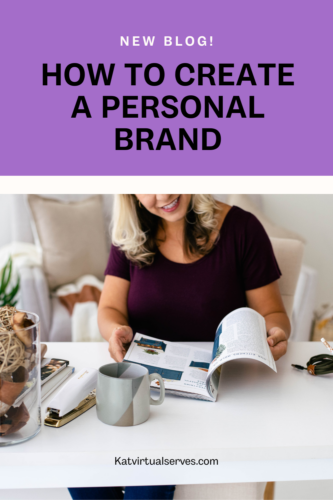Are you ready to take your small business to the next level and be seen as a trustworthy expert? If so, it’s time to tap into the power of your personal brand. Personal branding is more important than ever in today’s digital age, as reputations are built and maintained online.
In today’s digital age, personal branding is crucial in establishing yourself as a trustworthy expert in your field. Whether you’re a small business owner or an aspiring entrepreneur, understanding your personal brand’s power is vital.
As a small business owner, social media influencer, or freelancer, you have unique challenges and opportunities regarding personal branding. Building and maintaining a solid online reputation is more important than ever before. With the internet as the main stage for interactions and business transactions, how you are perceived online can make or break your success.
What is a Personal Brand?
Building a personal brand begins with self-reflection and understanding what makes you unique. Your brand is an extension of who you are and what you bring. Identifying your values, passions, and strengths will help you define your brand and differentiate yourself in the marketplace.
Picture this: You’re at a networking event, surrounded by other business owners who offer similar products or services. How do you stand out from the crowd? The answer lies in cultivating a powerful personal brand that truly represents who you are and what you bring to the table.
So, what exactly is a personal brand? It’s not just a logo or a catchy tagline. The unique blend of your qualities, values, experiences, and skills sets you apart. Your brand is the perception and reputation that others have of you, shaped by your actions, expertise, and how effectively you communicate your value.
What to Work on to Create Your Personal Brand
So, how can you create a personal brand that positions you as an authority in your industry? Here are a few key steps to help you get started:
1. Define Your Purpose: To build a powerful personal brand, you need clarity on your purpose. What impact do you want to make? What problem do you want to solve for your customers or clients? Identify your unique value proposition and communicate it clearly to your audience.

2. Consistency is Key: Consistency is crucial for personal branding. Determine your key messages, values, and voice and ensure consistency across all platforms. Maintaining a cohesive and authentic brand image builds trust, whether it’s your website, social media profiles, or email communication.
3. Storytelling for Connection: People connect with stories, so use the power of storytelling to captivate and engage your audience. Share your journey, your struggles, and your triumphs. Be vulnerable and authentic. Sharing your experiences builds trust and fosters a deeper connection with your audience.
4. Embrace Digital Platforms: In today’s digital world, your online presence is your brand’s first impression. Embrace the power of social media platforms like Instagram, Twitter, Threads, or LinkedIn to showcase your expertise and engage with your target audience. Provide valuable content, inspire others, and interact with your community consistently.
5, Create a unique value proposition is a statement that explains an individual’s distinct value to their target audience, highlighting their specific combination of skills, qualities, and attributes. Its purpose is to differentiate them from others in the marketplace and explain how they can help their target audience while highlighting their results and benefits. Three key takeaways are: 1) the unique value proposition statement focuses on results and benefits; 2) it should explain who an individual helps and how they get them results; 3) it sets an individual apart from the crowded marketplace.
6. Collaboration and Networking: Building a personal brand does not mean operating in isolation. Actively seek opportunities for collaboration and networking—partner with other small business owners, industry influencers, or even your customers. Networking expands your reach and allows you to be seen as an expert among your peers.
The first thing to remember is that personal branding is an ongoing process. It requires consistent effort and dedication. Stay curious, continuously learn and evolve, and adapt to the ever-changing digital landscape. By nurturing your brand, you’ll position yourself as an authority and build a strong reputation in your field.
When most people think about branding, they immediately envision logos and colors. And while those elements are undoubtedly significant, they don’t have to be your first steps in creating a memorable and impactful brand. As you can see from this blog, crucial groundwork must be laid before you even think about designing a logo. But there’s no harm in creating a branding board.
So, if you’re a new business owner wondering how to create a branding board that truly reflects your vision and resonates with your target audience, you’re in the right place. Now comes the fun part – creating a visual representation of your brand. These are a few tips:
How to create a branding board:
- Set up a free account or purchase a subscription to your favorite imaging software like Canva.
- Upload your logos:
- Main logo
- 1-color logo (for printing)
- Submark – an icon or stylized first letter of your logo for use in a condensed space
- Color palette
- Patterns & graphic elements that complement the brand personality.
- Fonts
- Header, body + accent
- Brand anchors
- Adjectives that describe the brand
- Visual inspiration
- Images that use the same color palette or elicit the emotional response you want from the brand.
- Search Google for “brand board examples” for thousands of samples.
Small business owners embrace the power of personal branding and harness it to establish themselves as trustworthy experts. Your personal brand has the potential to unlock countless opportunities and propel your business to new heights. Start today and build a brand that leaves a lasting impact!
